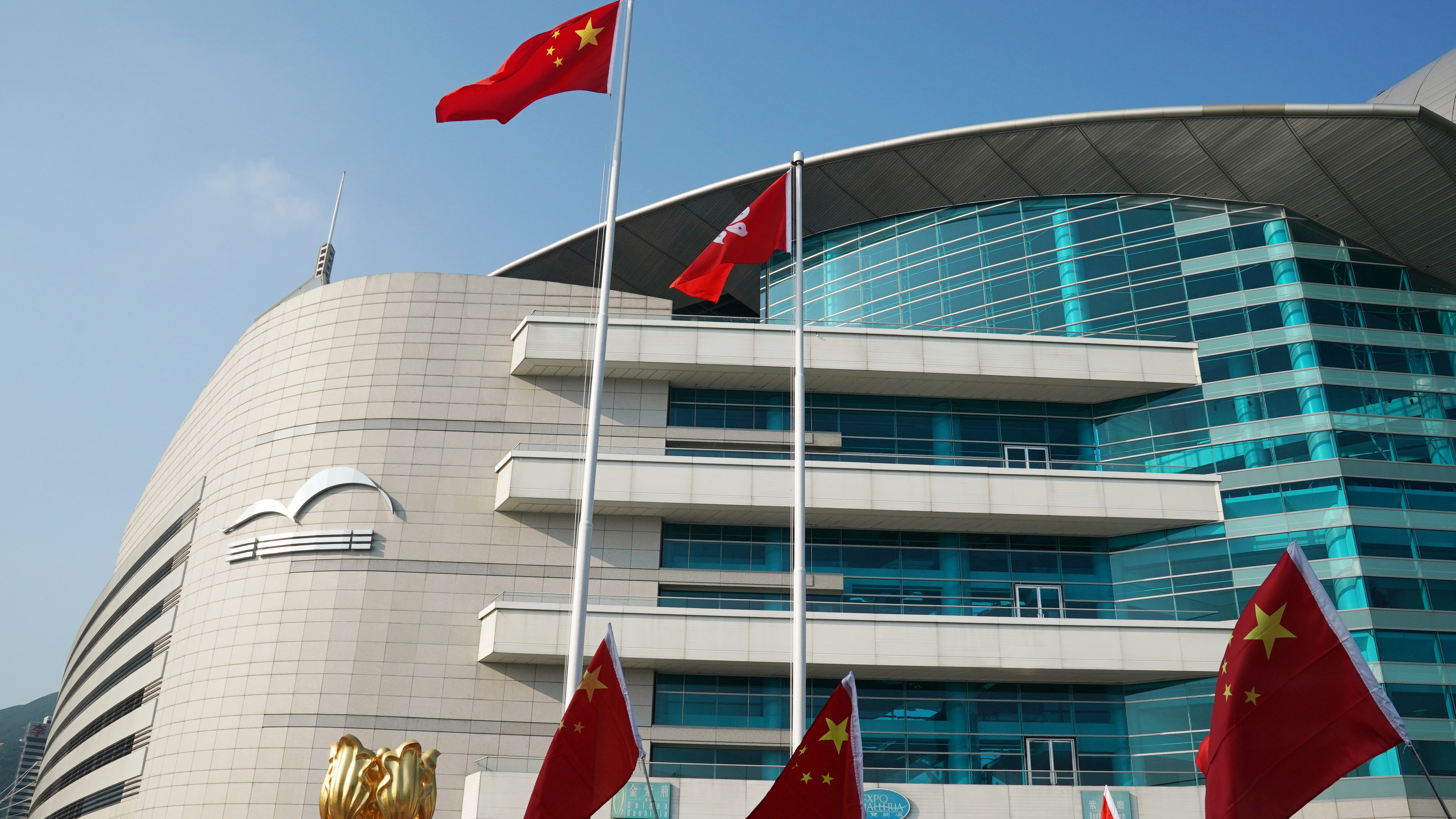
A national flag raising ceremony held at the Golden Bauhinia Square in Hong Kong, south China, September 8, 2019. /Xinhua
A national flag raising ceremony held at the Golden Bauhinia Square in Hong Kong, south China, September 8, 2019. /Xinhua
Editor's note: Mustafa H. Sayed is executive director of the Pakistan-China Institute. The article reflects the author's opinions and not necessarily the views of CGTN.
When Hong Kong returned to China in 1997, the move was embraced by many on the Chinese mainland and in Hong Kong – welcoming Hong Kong back into China's sovereignty. Hong Kong, post 1997, was run according to the late Chinese leader Deng Xiaoping's speech of 1984, where he said, "What is a patriot? A patriot is one who respects the Chinese nation, sincerely supports the motherland's resumption of sovereignty over Hong Kong and wishes not to impair Hong Kong's prosperity and stability," he said. "Those who meet these requirements are patriots, whether they believe in capitalism or feudalism or even slavery. We don't demand that they be in favor of China's socialist system; we only ask them to love the motherland and Hong Kong."
To date, Hong Kong has come to be known as a "super-connector," linking the East and the West and acting as a gateway for Western companies to do business with Asia and China. According to the Washington-based conservative Heritage Foundation's Index of Economic Freedom, Hong Kong has had the highest degree of economic freedom in the world. In the book The Hong Kong Advantage, the authors argue that one of the reasons why Hong Kong has flourished as a connectivity hub is because there is a clear separation in Hong Kong between the role of government as referee, and the role of private companies as active players in the economy, which is unique in Asia and rare worldwide.
So what has changed? The "Occupy Central Movement" that had a section of Hong Kong residents calling for reform and more representation in the government started receiving significant political support via high-level statements by the UK and U.S. and bi-partisan legislation by the U.S., amounting to interference and enlargement of what was an internal matter of China regarding its own citizens' call for reform within the existing system and constitution.

The Central station of the Mass Transit Railway (MTR) in Hong Kong, south China, September 8, 2019. /Xinhua
The Central station of the Mass Transit Railway (MTR) in Hong Kong, south China, September 8, 2019. /Xinhua
On June 27, 2020, the Time Magazine in its article "Trump administration freezes funds intended to benefit Hong Kong protesters" listed instances of money that was allocated by the U.S. state-owned agencies such as the Global Media Agency, National Endowment of Democracy and other organizations that were supporting "human rights" and "democracy" initiatives which were linked to the Hong Kong protesters. What if the Chinese government had politically or financially supported the January 6 assault on Capitol Hill in Washington where armed militias essentially took over the U.S. parliament?
Unfortunately, Hong Kong, for outside actors, is not about human rights or democracy, but about narrow political interests that center around confronting and containing Beijing and the Communist Party of China.
The recent announcement by the Chinese government that requires public officials to pledge an oath of allegiance to the CPC is a significant step. Retaining the body politic of Hong Kong as an integral part of the People's Republic of China is important in the long term. "One country, two systems" has been a successful model where the SARs have operated under reasonable autonomy and flourished economically. However, the basis of provision of public goods to the people of Hong Kong and serving as a global hub for the financial services industry is political stability and adherence to the rule of law.
The future of Hong Kong is the collective responsibility of all the beneficiaries of this port city, which has been serving as a connector and enabling global businesses from across the world to engage in swift, efficient and profitable commerce over the past decades. As the Biden administration seeks to compete, confront and cooperate with China in its three-pronged strategy, it is important for Washington and its partners to understand that Hong Kong is key for international economic cooperation, more so in regard to post-COVID-19 economic recovery, and should be used as a tool to propel the global economy forward instead of being used as a "card" to serve short-term political interests.
(If you want to contribute and have specific expertise, please contact us at opinions@cgtn.com.)

